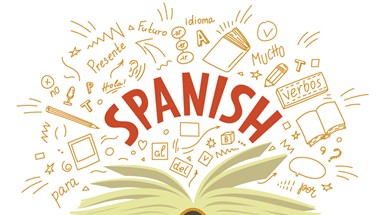MFL: Spanish
Enabling our pupils to explore other cultures, develop a love of language and deepen their understanding of the world.


At Templars Academy we see learning a language as an essential part of the curriculum. It fosters children’s curiosity about the world and provides an opening to other cultures. Children have the opportunity to progress in one foreign language throughout the school (Spanish) and develop their skills in listening, speaking, reading, writing and grammar. Children will show enthusiasm for learning a foreign language and develop a passion to explore the world around them, broadening their horizons and enabling them to become global citizens.
All classes will have access to a high-quality foreign languages curriculum using the Language Angels scheme of learning and resources. This will progressively develop pupil skills in Spanish through regularly taught and well-planned weekly sessions in Key Stage 2. Children will progressively acquire, use and apply a growing bank of vocabulary, language skills and grammatical knowledge organised around age-appropriate topics and themes – building blocks of language into more complex, fluent and authentic language.
Each unit ends with an assessment opportunity that assesses children reading, writing, listening and speaking skills. This allows children and cohorts to be tracked throughout their language learning journey.
Children will have a passion and curiosity for learning a foreign language – Spanish. They will make good or better than expected progress and develop their skills in reading, writing, listening and speaking a foreign language. Children will learn the foundations of learning a foreign language and will be ready to develop this skill at secondary school – whatever language they go on to study.
National Curriculum Statutory Statements:
By the end of key stage 2, pupils should be able to:
- Listen attentively to spoken language and show understanding by joining in and responding.
- Explore the patterns and sounds of language through songs and rhymes and link the spelling, sound and meaning of words.
- Engage in conversations; ask and answer questions; express opinions and respond to those of others; seek clarification and help.
- Speak in sentences, using familiar vocabulary, phrases and basic language structures.
- Develop accurate pronunciation and intonation so that others understand when they are reading aloud or using familiar words and phrases.
- Present ideas and information orally to a range of audiences.
- Read carefully and show understanding of words, phrases and simple writing.
- Appreciate stories, songs, poems and rhymes in the language.
- Broaden their vocabulary and develop their ability to understand new words that are introduced into familiar written material, including through using a dictionary.
- Write phrases from memory, and adapt these to create new sentences, to express ideas clearly.
- Describe people, places, things and actions orally and in writing.
- Understand basic grammar appropriate to the language being studied, including (where relevant): feminine, masculine and neuter forms and the conjugation of high-frequency verbs; key features and patterns of the language; how to apply
these, for instance, to build sentences; and how these differ from or are similar to English.
